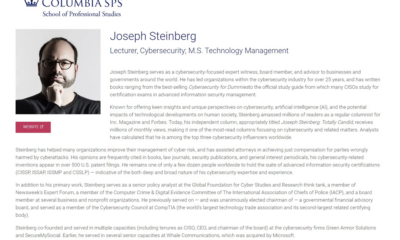Freeze Your Credit Report And Protect Your Identity: Doing So Is Free Starting Next Week
American consumers will be able to freeze their credit files for free starting on September 21, thanks to a new law going into effect next week.
Among the various provisions of The Economic Growth, Regulatory Relief and Consumer Protection Act, signed in May by President Trump, is a new prohibition on credit bureaus charging any fees to consumers wishing to freeze or unfreeze their credit files or those of their children and other dependents. (Whether the new law is a win for consumers is subject to debate – it also eases various restrictions on banks that were put in place after the financial institutions’ actions helped create the Great Recession of 2008.)
A credit freeze effectively restricts access by third parties to an individual’s credit report; freezing one’s credit makes it more difficult (but, certainly not impossible,) for criminals to steal that person’s identity and open credit card accounts or other loans in that person’s name. Since the freeze feature was first introduced, the major bureaus have often charged people $5 or $10 for every freeze or unfreeze, typically waving such fees only when required to do so by various state laws, and, in some cases, after major data breaches such as last year’s Equifax breach.
Note that credit freezes are not the same thing as fraud alerts – freezing a credit file means that nobody (not even the subject of the credit file) can access the file in order to open a new account; placing a fraud alert on one’s credit file, on the other hand, just means that lenders must verify the subject’s identity before extending any new credit to him or her (or to someone impersonating him or her). Fraud alerts do not freeze one’s credit file, nor do they last forever; as of now they may expire after as little as 90 days – starting on September 21st they will last at least a year.
Besides the big three credit bureaus, there are, of course, dozens of smaller companies that provide credit reporting information – often to specific vertical markets. The Consumer Financial Protection Bureau offers a free list of several dozen such firms, along with relevant contact details.
Even after the fee is eliminated next week for everyone not yet protected by state regulations, freezing credit may remain somewhat complicated. Each of the credit bureaus has a different process for freezing and unfreezing a file, and freezes are hardly a one-time process: any time that the subject of the file wants to open any credit account, he or she needs to (temporarily) unfreeze (and then refreeze) his or her file.
Few Americans – some estimate as lows as 2% of folks with credit files – actually freeze their credit files. While eliminating the fees for freezing and unfreezing may incentivize more people to activate freezes, the reality is that the inconvenience involved, coupled with the perception that fraud resulting from criminals’ opening fraudulent accounts impacts primarily credit card issuers and others who issue loans, but, not the people in whose names the accounts are opened, is likely to keep the total number quite low. Time will tell.













 CyberSecurity for Dummies is now available at special discounted pricing on Amazon.
Give the gift of cybersecurity to a loved one.
CyberSecurity for Dummies is now available at special discounted pricing on Amazon.
Give the gift of cybersecurity to a loved one.